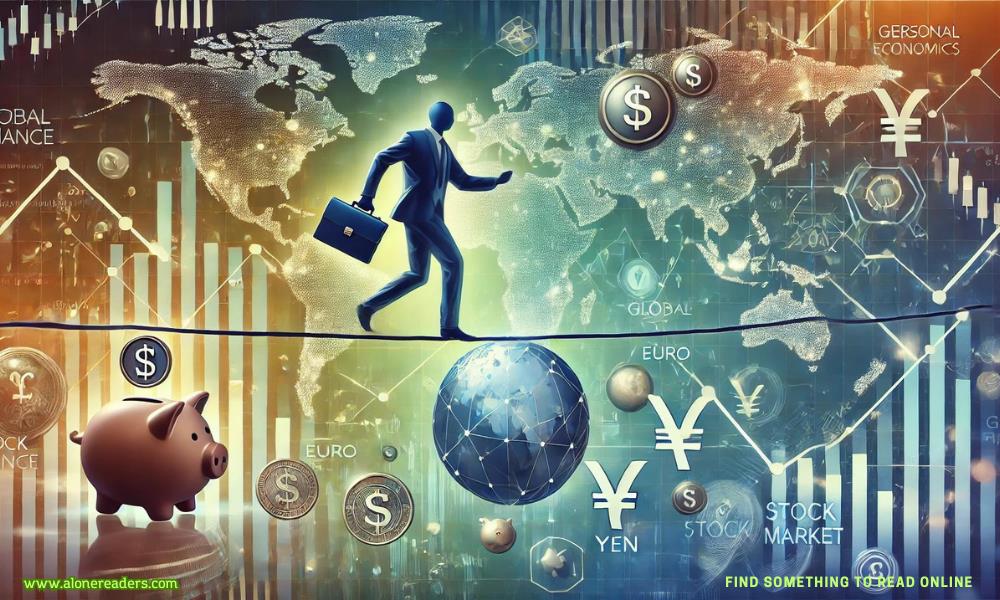
Global economics significantly influences personal finance, intertwining the complexities of international markets with the financial decisions individuals make daily. This connection is evident in various facets of our lives, from the prices of goods and services to investment returns and job security. Understanding these impacts can empower individuals to make informed decisions and adapt strategies to safeguard and enhance their financial well-being.
One of the most direct ways global economics affects personal finance is through inflation. Inflation, the rate at which the general level of prices for goods and services rises, erodes purchasing power. When global economic conditions lead to higher inflation, individuals find that their money buys less than it did previously. This phenomenon is particularly noticeable in the cost of essential items such as food, fuel, and healthcare. For instance, geopolitical tensions or natural disasters can disrupt supply chains, leading to increased prices worldwide. As a result, households must adjust their budgets, often reducing discretionary spending to accommodate higher costs for necessities.
Interest rates, another crucial aspect of global economics, also play a pivotal role in personal finance. Central banks around the world, such as the Federal Reserve in the United States or the European Central Bank, adjust interest rates to control inflation and stabilize their economies. These changes have a ripple effect on personal finance. When interest rates are low, borrowing becomes cheaper, encouraging individuals to take out loans for homes, cars, or education. Conversely, higher interest rates increase the cost of borrowing, which can dampen spending and investment. Savers benefit from higher interest rates through better returns on savings accounts and fixed-income investments, while borrowers face higher costs for servicing debt.
Exchange rates are another significant factor influenced by global economics, impacting individuals who travel abroad, buy imported goods, or invest internationally. When a country's currency weakens, imported goods become more expensive, leading to higher living costs. On the other hand, a strong currency makes imports cheaper but can hurt domestic industries by making their products less competitive internationally. For individuals with investments in foreign markets, currency fluctuations can significantly impact returns. Thus, staying informed about global currency trends can help individuals make better financial decisions regarding travel, purchases, and investments.
The global labor market also shapes personal finance by affecting employment opportunities and wage levels. Economic conditions in major economies can influence job availability and salaries worldwide. For example, a recession in a major economy like the United States can lead to job losses not only domestically but also in countries that export goods and services to the U.S. Similarly, technological advancements and outsourcing trends can shift job markets, creating new opportunities while rendering some skills obsolete. Individuals must continuously adapt by acquiring new skills and staying abreast of industry trends to maintain job security and career growth.
Investments are inherently tied to global economic conditions. Stock markets react to economic indicators such as GDP growth, unemployment rates, and corporate earnings reports. Global events, such as trade wars, political instability, or pandemics, can cause market volatility, impacting the value of individual portfolios. Diversification, spreading investments across various asset classes and geographic regions, can mitigate some risks associated with global economic fluctuations. By understanding the interconnectedness of global markets, investors can make strategic decisions to protect and grow their wealth.
Furthermore, government policies influenced by global economics can affect personal finance. Trade policies, tariffs, and international agreements shape the economic environment in which businesses operate. These policies can impact the prices of goods and services, job availability, and investment returns. For example, trade agreements that promote free trade can lower the cost of imported goods, benefiting consumers. However, protectionist policies can lead to higher prices and reduced economic growth. Staying informed about government policies and their potential impact on the economy can help individuals anticipate changes and adjust their financial plans accordingly.
In addition to these economic factors, global economics also affects personal finance through social and environmental considerations. Climate change, for instance, poses significant financial risks. Natural disasters, shifting weather patterns, and regulatory changes aimed at mitigating climate change can all impact industries and economies. Individuals need to consider these factors when making long-term financial decisions, such as investing in real estate or planning for retirement. Sustainable investing, which considers environmental, social, and governance (ESG) criteria, is gaining popularity as individuals recognize the importance of aligning their investments with global sustainability goals.
Global economics profoundly impacts personal finance, influencing everything from inflation and interest rates to employment and investment returns. Understanding these connections allows individuals to navigate the complexities of the global economy, making informed decisions to safeguard and enhance their financial well-being. By staying informed and adapting strategies to the changing economic landscape, individuals can better manage their finances, mitigate risks, and seize opportunities in an increasingly interconnected world.